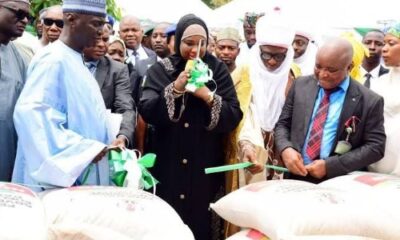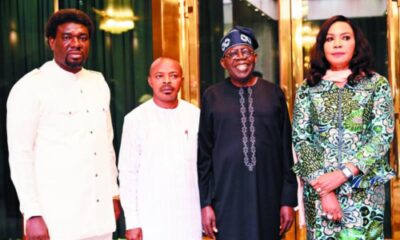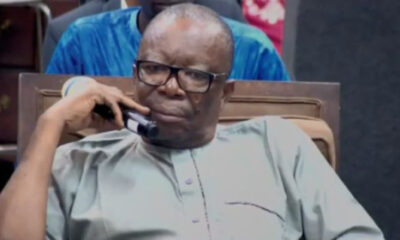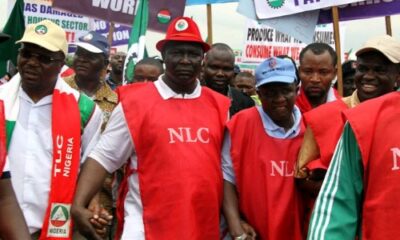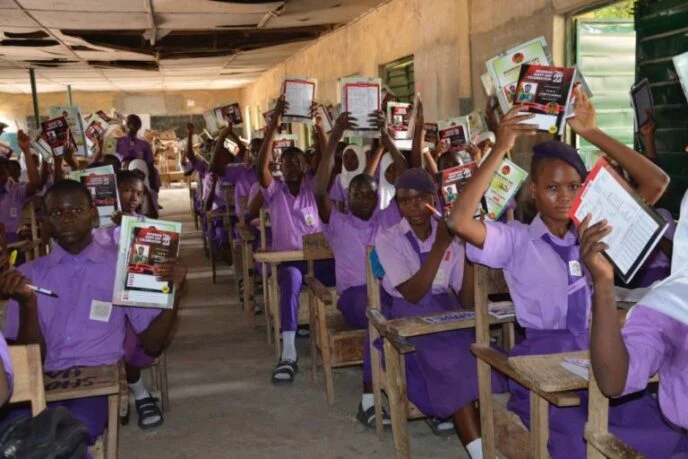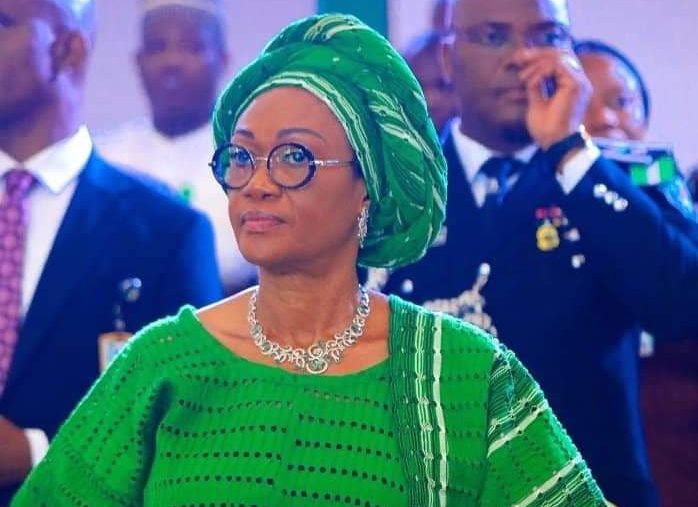The Trade Union Congress (TUC), one of Nigeria’s leading amalgamated labor unions, has threatened to embark on a solidarity strike with the Academic Staff Union of Universities (ASUU) to compel the government to address the workers’ concerns and reopen the universities.
In a statement issued on Tuesday, a copy of which was obtained by PREMIUM TIMES, TUC accused the Nigerian government of deliberately neglecting the universities and subjecting the workers and students to untold hardship.
This is coming a few days after the Nigeria Labour Congress (NLC)- TUC’s counterpart, threatened to declare a three-day warning strike in similar solidarity with the striking ASUU members.
Similarly, apart from the declaration by the national leadership of the National Association of Nigerian Students (NANS) to disrupt the primaries of political parties in Abuja, the federal capital territory (FCT), the South-east axis of the union has given a nine-day ultimatum to the government to ensure the reopening of the universities.
TUC’s threat
The statement, which was signed by TUC president, Quadri Olaleye, urged the government “to immediately resolve all lingering issues with the Academic Staff Union of Universities (ASUU) or be ready for any industrial action.”
The statement reads in part; “The Congress and its affiliates are unanimous on the return of our children back to school, and the government has no excuse whatsoever to further keep these innocent students and their lecturers at home. The Congress is worried that a government that could raise money to feed children who were at home during the heat of COVID-19 cannot do the same for the education sector now.”
The union accused both the ministers of education and his labor and employment counterparts, Adamu Adamu and Chirs Ngige respectively, of failure to address the lingering issues, and advised them to resign.
The union further stated; “We strongly condemn the continued disruption of the academic calendar in public institutions and the apathetic attitude of political office holders, who are busy buying nomination forms at N100,000,000 (One hundred million naira) while the economy is gasping for breath. They make politics expensive to disenfranchise Nigerians of conscience from the political space. The peak of the absurdity is that even serving politicians with no visible projects to their credit are also buying forms to be president!
“We wish to stress that the reason why politicians care less about the plight of Nigerians is that their children school and live abroad, what happens in Nigerian public universities is none of their business. The time has come for the organized labor and all well-meaning Nigerians to prevail on the Federal Government to honor the Collective Agreement reached with the University Teachers. The danger of keeping the students at home at a time the country is facing a serious security challenge is quite grave and unacceptable to us.”
TUC accused unnamed government officials of walking out of negotiations, describing as ridiculous their perceived failure to listen “to the voice of reason, they avoid and walk out of negotiations.”
The union urged the government to do everything to “dispense with the impasse to avoid a situation where Congress might be compelled to embark on a solidarity strike.”
“The clear ineptitude of this administration is becoming more worrisome, unfortunately, there appears to be no end in sight, making the country a laughing stock in the committee of nations. Government must engage ASUU without further delay in constructive negotiations to find a lasting solution to their complaints now or get ready for mass action,” TUC concluded.
NANS ultimatum
The zone F of NANS, which comprises universities in Nigeria’s South-east, Tuesday, also issued a statement announcing a nine-day ultimatum to both the government and the striking union to open all public universities.
The News Agency of Nigeria (NAN) reported that the zonal coordinator, Moses Onyia, gave the ultimatum in a statement released in Enugu.
The statement, according to NAN, urged both the government and ASUU to do the needful before nine days, adding that failure to do this within or at the expiry of this ultimatum would only leave students with the last resort of taking a drastic measure.
According to the statement, from May 20 to May 25, 2022; after the expiration of the ultimatum, we will take up measures that will “see the Nigerian students of the South-east extraction in their numbers blocking one of the major entrances into the region –the Niger Bridge.”
The statement reads in part; “We will also block all the three airports in the South-East, which include Akanu Ibiam International Airport, Enugu; Sam Mbakwe Airport, Owerri, and Anambra Passenger and Cargo International Airport, Umeri, Anambra.
“Thus, halting all movement to and from this axis of the South-East.
“It is our hope it does not get to this point, but when we are pushed to the wall, we are ready to hold the bull by the horns.”
The union demanded that the government should show a commitment to the oath of protecting the interest and welfare of Nigerians and Nigerian students “which they swore to.”
“We enjoin all students in the South-east to remain law-abiding and peaceful but stay at alert and be on the lookout for instructions from its leadership as events unfold. When it becomes inevitable, the call to action will be made,” the statement added.
Backstory
ASUU, on Monday, May 9, extended its three-month-old warning strike by yet another three months.
ASUU embarked on a nationwide warning strike on February 14 and has continued to extend it towards pressing home its demands including the revitalization of public universities, payment of earned academic allowances, and the deployment of the University Transparency and Accountability Solution for payment of university lecturers.
Other university workers’ unions have also since embarked on separate strikes for similar reasons of improved welfare packages for members, repositioning the universities for global relevance, among other reasons.
Meanwhile, the Joint Action Committee (JAC) of both the Senior Staff Association of Nigerian Universities (SSANU) and the Non-Academic Staff Union of Educational and Associated Institutions (NASU) on Tuesday met the education minister to present its University Peculiar Payroll and Payment System (U3PS) as an alternative to the Integrated Personnel Payroll Information System (IPPIS) for the payment of its workers.
Credit: Premium Times.

 BIG STORY2 days ago
BIG STORY2 days ago
 BIG STORY4 days ago
BIG STORY4 days ago
 BIG STORY11 hours ago
BIG STORY11 hours ago
 BIG STORY2 days ago
BIG STORY2 days ago
 BIG STORY2 days ago
BIG STORY2 days ago
 BIG STORY2 days ago
BIG STORY2 days ago
 BIG STORY2 days ago
BIG STORY2 days ago
 BIG STORY2 days ago
BIG STORY2 days ago







